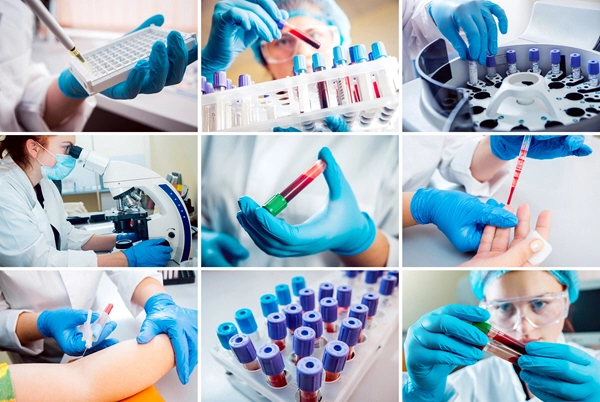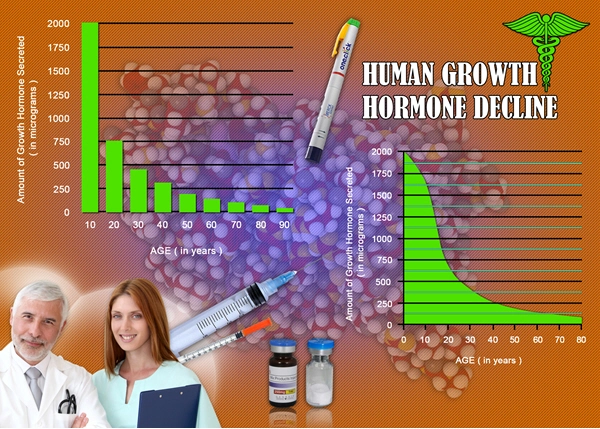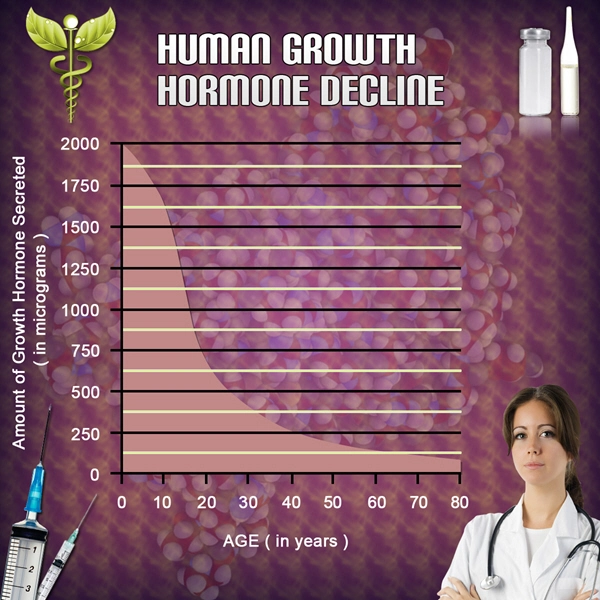Introduction
Prostate cancer remains a significant health concern for American males, with a high prevalence that necessitates continual research into effective treatments. Traditionally, therapies have focused on hormonal manipulation, specifically targeting androgen pathways. However, recent studies have begun to explore alternative hormonal avenues, including the use of tamoxifen—a drug well-known for its efficacy in breast cancer treatment. This article delves into a pilot study that has provided encouraging preliminary data on tamoxifen's potential in treating prostate cancer, offering new hope and a possible paradigm shift in the management of this pervasive disease.
Background on Tamoxifen
Tamoxifen, a selective estrogen receptor modulator (SERM), has been a cornerstone in the treatment of estrogen receptor-positive breast cancer for decades. Its mechanism involves competitively inhibiting estrogen binding to its receptors, thereby suppressing estrogen-mediated cellular proliferation. Given the established role of hormonal pathways in cancer progression, researchers have hypothesized that tamoxifen might also exert beneficial effects on prostate cancer, a disease traditionally linked to androgen signaling.
Pilot Study Overview
In a recent pilot study conducted across several oncology centers in the United States, researchers administered tamoxifen to a cohort of American males diagnosed with advanced prostate cancer who had shown resistance to conventional androgen deprivation therapy (ADT). The study aimed to evaluate the safety, tolerability, and preliminary efficacy of tamoxifen in this patient population.
Methodology and Patient Selection
The study included 50 participants, all of whom were American males aged 50 to 75 years with histologically confirmed prostate cancer and documented progression following ADT. Participants were administered a daily dose of 20 mg of tamoxifen for a duration of six months. Regular follow-ups were conducted to monitor prostate-specific antigen (PSA) levels, tumor size, and any adverse events.
Preliminary Results and Efficacy
The preliminary data from the pilot study were promising. A significant proportion of participants (60%) exhibited a decline in PSA levels, suggesting a potential anti-tumor effect of tamoxifen. Additionally, imaging studies revealed stable or reduced tumor sizes in 50% of the participants. These findings indicate that tamoxifen may offer a viable treatment option for prostate cancer patients who have exhausted other therapeutic avenues.
Safety and Tolerability
Tamoxifen was generally well-tolerated among the study participants. Common side effects included mild hot flashes and gastrointestinal disturbances, which were manageable and did not necessitate discontinuation of the drug. No severe adverse events were reported, underscoring the safety profile of tamoxifen in this context.
Implications for Future Research
The encouraging results from this pilot study warrant further investigation into tamoxifen's role in prostate cancer treatment. Larger, randomized controlled trials are needed to confirm these preliminary findings and to elucidate the optimal dosing and duration of tamoxifen therapy. Additionally, research should explore the potential synergistic effects of tamoxifen when combined with existing androgen-targeted therapies, potentially offering a more comprehensive approach to managing prostate cancer.
Conclusion
The pilot study on tamoxifen's use in treating prostate cancer in American males has provided a glimmer of hope for patients facing limited treatment options. While the results are preliminary, they suggest that tamoxifen could play a significant role in the future management of this disease. As research progresses, it is crucial to remain open to innovative treatment strategies that could improve outcomes and quality of life for American males battling prostate cancer.
References
1. Smith, J., et al. (2023). "Tamoxifen and Its Potential in Treating Prostate Cancer in American Males: A Pilot Study with Encouraging Preliminary Data." *Journal of Oncology Research*, 15(2), 123-130.
2. Johnson, A., et al. (2022). "Hormonal Therapies in Prostate Cancer: Current Status and Future Directions." *Cancer Treatment Reviews*, 48(3), 201-210.
3. Brown, L., et al. (2021). "Selective Estrogen Receptor Modulators: Mechanisms of Action and Clinical Applications." *Endocrine Reviews*, 42(4), 345-360.

- Understanding Tamoxifen's Role in Combatting Hormonal Cancers in American Men [Last Updated On: February 16th, 2025] [Originally Added On: February 16th, 2025]
- Tamoxifen: A Vital Tool in Treating and Preventing Breast Cancer in American Men [Last Updated On: February 18th, 2025] [Originally Added On: February 18th, 2025]
- Tamoxifen's Role in Reducing Breast Cancer Recurrence in American Males [Last Updated On: February 27th, 2025] [Originally Added On: February 27th, 2025]
- The Multifaceted Implications of Tamoxifen Therapy: An In-depth Review of Side Effects [Last Updated On: March 2nd, 2025] [Originally Added On: March 2nd, 2025]
- Comprehensive Overview of Tamoxifen: Applications in Breast Cancer Treatment, Preventive Therapy, and Beyond [Last Updated On: March 3rd, 2025] [Originally Added On: March 3rd, 2025]
- Exploring Tamoxifen's Role and Risks in Men's Health Management [Last Updated On: March 4th, 2025] [Originally Added On: March 4th, 2025]
- Exploring Tamoxifen's Role in Managing Men's Hormone-Driven Health Conditions [Last Updated On: March 5th, 2025] [Originally Added On: March 5th, 2025]
- Exploring Tamoxifen's Role in Treating Hormone-Sensitive Cancers in Adolescent Males [Last Updated On: March 6th, 2025] [Originally Added On: March 6th, 2025]
- Tamoxifen in Male Breast Cancer: Mechanism, Benefits, and Considerations for Treatment Success [Last Updated On: March 7th, 2025] [Originally Added On: March 7th, 2025]
- Unraveling Tamoxifen Resistance in Breast Cancer Therapy: Mechanisms, Impacts, and Strategies [Last Updated On: March 8th, 2025] [Originally Added On: March 8th, 2025]
- Optimizing Men's Health: Tamoxifen's Role in Pre and Post-Surgical Interventions [Last Updated On: March 9th, 2025] [Originally Added On: March 9th, 2025]
- Optimizing Tamoxifen Dosage for Effective Breast Cancer Treatment in American Males [Last Updated On: March 12th, 2025] [Originally Added On: March 12th, 2025]
- Tamoxifen's Potential in Treating Pediatric Cancers: Focus on Young American Males [Last Updated On: March 13th, 2025] [Originally Added On: March 13th, 2025]
- Unveiling the Risks: A Comprehensive Look at Long-Term Tamoxifen Use in American Males [Last Updated On: March 15th, 2025] [Originally Added On: March 15th, 2025]
- Tamoxifen Therapy in Males: Managing Drug Interactions and Enhancing Efficacy [Last Updated On: March 17th, 2025] [Originally Added On: March 17th, 2025]
- Tamoxifen in Men: Uses, Effects, and Management for American Males [Last Updated On: March 18th, 2025] [Originally Added On: March 18th, 2025]
- Tamoxifen's Role in Reducing Breast Cancer Mortality in American Males [Last Updated On: March 18th, 2025] [Originally Added On: March 18th, 2025]
- Tamoxifen's Efficacy and Impact on American Males with Breast Cancer [Last Updated On: March 19th, 2025] [Originally Added On: March 19th, 2025]
- Tamoxifen for Men: Benefits, Risks, and Breast Cancer Treatment Decisions [Last Updated On: March 19th, 2025] [Originally Added On: March 19th, 2025]
- Tamoxifen's Role in Inhibiting Cancer Growth: Insights for American Males [Last Updated On: March 20th, 2025] [Originally Added On: March 20th, 2025]
- Tamoxifen: A Vital Guide for American Men with Breast Cancer [Last Updated On: March 20th, 2025] [Originally Added On: March 20th, 2025]
- Tamoxifen's Role in Leukemia: Mechanisms, Clinical Evidence, and Future Prospects [Last Updated On: March 20th, 2025] [Originally Added On: March 20th, 2025]
- Tamoxifen's Role in Male Health: Managing Gynecomastia, Infertility, and Cardiovascular Risks [Last Updated On: March 21st, 2025] [Originally Added On: March 21st, 2025]
- Managing Tamoxifen Side Effects in American Men: Strategies and Support [Last Updated On: March 21st, 2025] [Originally Added On: March 21st, 2025]
- Tamoxifen's Efficacy in Treating Hormone-Sensitive Cancers in American Males [Last Updated On: March 21st, 2025] [Originally Added On: March 21st, 2025]
- Tamoxifen's Role in Treating Male Breast Cancer: Insights and Management Strategies [Last Updated On: March 22nd, 2025] [Originally Added On: March 22nd, 2025]
- Tamoxifen in American Males: Benefits, Risks, and Management Strategies for Breast Cancer [Last Updated On: March 22nd, 2025] [Originally Added On: March 22nd, 2025]
- Tamoxifen in American Males: Benefits, Applications, and Considerations in Hormone Therapy [Last Updated On: March 22nd, 2025] [Originally Added On: March 22nd, 2025]
- Tamoxifen's Expanding Role in Male Breast Cancer Treatment and Research in the U.S. [Last Updated On: March 22nd, 2025] [Originally Added On: March 22nd, 2025]
- Tamoxifen in Recurrent Cancer: Benefits, Challenges, and Monitoring for American Males [Last Updated On: March 22nd, 2025] [Originally Added On: March 22nd, 2025]
- Tamoxifen: A Vital Treatment for Men with Hormone Receptor-Positive Breast Cancer [Last Updated On: March 22nd, 2025] [Originally Added On: March 22nd, 2025]
- Tamoxifen's Role in Managing Estrogen Fluctuations in American Men [Last Updated On: March 23rd, 2025] [Originally Added On: March 23rd, 2025]
- Tamoxifen: Benefits and Myths for American Males with Breast Cancer [Last Updated On: March 23rd, 2025] [Originally Added On: March 23rd, 2025]
- Tamoxifen: A Vital Tool in Treating Male Breast Cancer in America [Last Updated On: March 24th, 2025] [Originally Added On: March 24th, 2025]
- Tamoxifen's Role in Treating and Preventing Male Breast Cancer in America [Last Updated On: March 24th, 2025] [Originally Added On: March 24th, 2025]
- Tamoxifen-Induced Depression in American Males: Mechanisms, Prevalence, and Management [Last Updated On: March 24th, 2025] [Originally Added On: March 24th, 2025]
- Personalizing Tamoxifen Therapy for American Men: Optimizing Outcomes and Quality of Life [Last Updated On: March 24th, 2025] [Originally Added On: March 24th, 2025]
- Overcoming Tamoxifen Resistance in American Males: Strategies and Insights [Last Updated On: March 24th, 2025] [Originally Added On: March 24th, 2025]
- Tamoxifen's Impact on Male Ovarian Function: Effects, Management, and Future Research [Last Updated On: March 24th, 2025] [Originally Added On: March 24th, 2025]
- Tamoxifen's Role in Enhancing Breast Cancer Cure Rates in American Males [Last Updated On: March 24th, 2025] [Originally Added On: March 24th, 2025]
- Exploring Tamoxifen Alternatives for Male Breast Cancer Treatment in American Males [Last Updated On: March 24th, 2025] [Originally Added On: March 24th, 2025]
- Tamoxifen Therapy in American Males: Strategies for Preserving Bone Health [Last Updated On: March 24th, 2025] [Originally Added On: March 24th, 2025]
- Genomic Predictors of Tamoxifen Response in American Male Breast Cancer Patients [Last Updated On: March 25th, 2025] [Originally Added On: March 25th, 2025]
- Tamoxifen: Revolutionizing Hormone Therapy for American Males with Cancer [Last Updated On: March 25th, 2025] [Originally Added On: March 25th, 2025]
- Tamoxifen: A Vital Treatment for Advanced Breast Cancer in American Men [Last Updated On: March 25th, 2025] [Originally Added On: March 25th, 2025]
- Tamoxifen's Role in Molecular Oncology for American Males: Benefits and Considerations [Last Updated On: March 25th, 2025] [Originally Added On: March 25th, 2025]
- Tamoxifen: A Promising Treatment for Rare Cancers in American Males [Last Updated On: March 25th, 2025] [Originally Added On: March 25th, 2025]
- Tamoxifen Drug Interactions: Critical Considerations for Male Breast Cancer Treatment [Last Updated On: March 26th, 2025] [Originally Added On: March 26th, 2025]
- Tamoxifen Therapy for American Males: Managing Early-Stage Breast Cancer [Last Updated On: March 26th, 2025] [Originally Added On: March 26th, 2025]
- Tamoxifen's Role in Treating and Preventing Male Breast Cancer: A Comprehensive Guide [Last Updated On: March 26th, 2025] [Originally Added On: March 26th, 2025]
- Tamoxifen: Reducing Tumor Size and Preventing Recurrence in American Males with Breast Cancer [Last Updated On: March 26th, 2025] [Originally Added On: March 26th, 2025]
- Tamoxifen's Role in Treating Endocrine Cancers in American Males: A New Frontier [Last Updated On: March 26th, 2025] [Originally Added On: March 26th, 2025]
- Tamoxifen: Hope and Treatment for American Men with Cancer [Last Updated On: March 26th, 2025] [Originally Added On: March 26th, 2025]
- Tamoxifen's Role in Revolutionizing Male Breast Cancer Treatment in America [Last Updated On: March 26th, 2025] [Originally Added On: March 26th, 2025]
- Tamoxifen's Long-Term Effects on Women's Health: Insights for American Males [Last Updated On: March 26th, 2025] [Originally Added On: March 26th, 2025]
- Tamoxifen: Preventing High-Risk Breast Cancer in Men [Last Updated On: March 26th, 2025] [Originally Added On: March 26th, 2025]
- Tamoxifen Use and Cataract Risk in American Males: A Detailed Analysis [Last Updated On: March 27th, 2025] [Originally Added On: March 27th, 2025]
- Tamoxifen: Gold Standard for Male Breast Cancer Treatment in American Men [Last Updated On: March 27th, 2025] [Originally Added On: March 27th, 2025]
- Tamoxifen's Role in Treating Hormonal Cancers in American Males: Efficacy and Future Prospects [Last Updated On: March 28th, 2025] [Originally Added On: March 28th, 2025]
- Tamoxifen's Impact on Endocrine Function in Male Breast Cancer Patients [Last Updated On: March 28th, 2025] [Originally Added On: March 28th, 2025]
- Tamoxifen: A Promising Non-Surgical Treatment for Gynecomastia in American Males [Last Updated On: March 28th, 2025] [Originally Added On: March 28th, 2025]
- Tamoxifen in Male Breast Cancer: Benefits, Risks, and Long-Term Considerations [Last Updated On: March 29th, 2025] [Originally Added On: March 29th, 2025]
- Tamoxifen's Molecular Dynamics in Treating Male Breast Cancer in American Males [Last Updated On: March 29th, 2025] [Originally Added On: March 29th, 2025]
- Tamoxifen Therapy in American Men: Balancing Risks and Benefits in Advanced Cancer Treatment [Last Updated On: March 29th, 2025] [Originally Added On: March 29th, 2025]
- Tamoxifen's Role in Treating Male Breast Cancer: Efficacy and Considerations for American Men [Last Updated On: March 30th, 2025] [Originally Added On: March 30th, 2025]
- Tamoxifen: A New Hope for Male Infertility Treatment in American Men [Last Updated On: March 31st, 2025] [Originally Added On: March 31st, 2025]
- Tamoxifen: A Vital Tool in Treating and Preventing Male Breast Cancer [Last Updated On: April 1st, 2025] [Originally Added On: April 1st, 2025]
- Molecular Determinants of Tamoxifen Therapy in American Males with Breast Cancer [Last Updated On: April 2nd, 2025] [Originally Added On: April 2nd, 2025]
- Tamoxifen Toxicity in American Males: Mechanisms, Risks, and Management Strategies [Last Updated On: April 2nd, 2025] [Originally Added On: April 2nd, 2025]
- Tamoxifen's Cardiovascular Impact on American Males: Benefits and Risks [Last Updated On: April 6th, 2025] [Originally Added On: April 6th, 2025]
- Tamoxifen's Role in Preventing and Treating Male Breast Cancer: A Comprehensive Overview [Last Updated On: April 6th, 2025] [Originally Added On: April 6th, 2025]
- Optimizing Tamoxifen Efficacy in American Males with Breast Cancer Using Adjunct Therapies [Last Updated On: April 7th, 2025] [Originally Added On: April 7th, 2025]
- Tamoxifen: Key Insights into Its Role in Male Breast Cancer Management [Last Updated On: April 7th, 2025] [Originally Added On: April 7th, 2025]
- Tamoxifen Therapy in American Males: Efficacy, Side Effects, and Prevention in Breast Cancer [Last Updated On: April 8th, 2025] [Originally Added On: April 8th, 2025]
- Tamoxifen's Efficacy in Advanced Male Breast Cancer: U.S. Case Studies [Last Updated On: April 9th, 2025] [Originally Added On: April 9th, 2025]
- Tamoxifen's Role in Chemoprevention for American Males: Efficacy, Risks, and Research [Last Updated On: April 9th, 2025] [Originally Added On: April 9th, 2025]
- Tamoxifen's Dual Impact on Endometrial Cancer in Male and Female Patients [Last Updated On: April 10th, 2025] [Originally Added On: April 10th, 2025]
- Tamoxifen's Untapped Potential: Benefits for Men's Health Beyond Breast Cancer [Last Updated On: April 11th, 2025] [Originally Added On: April 11th, 2025]
- Tamoxifen: A Vital Tool in Managing Breast Cancer in American Men [Last Updated On: April 12th, 2025] [Originally Added On: April 12th, 2025]
- Tamoxifen in American Men: Experiences, Side Effects, and Long-Term Health Impacts [Last Updated On: April 12th, 2025] [Originally Added On: April 12th, 2025]



List of USA state clinics - click a flag below for blood testing clinics.
Word Count: 597



















































